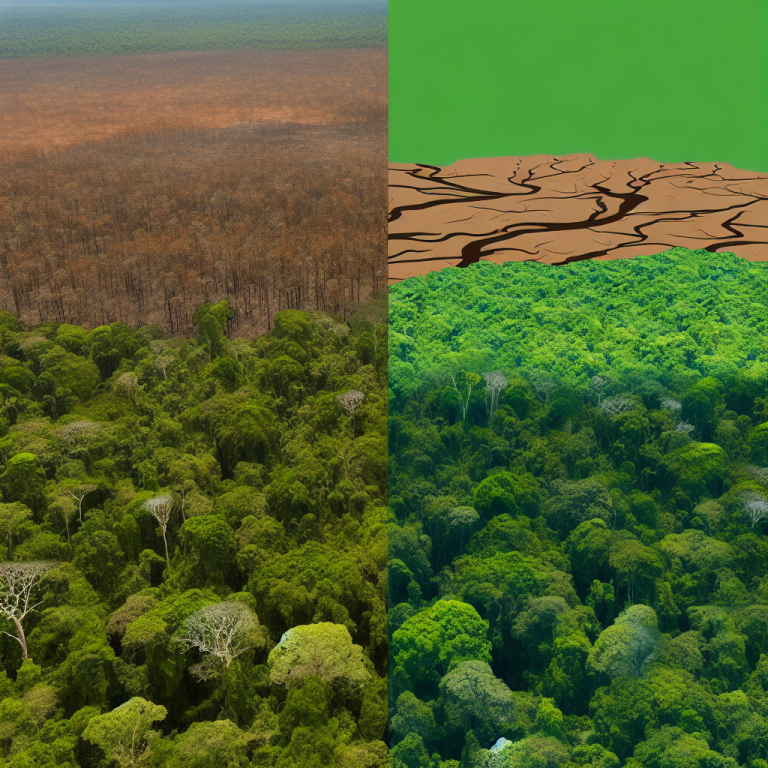Rainforest transformation in Sumatra, Indonesia is causing a shift in energy allocation from green to brown food webs, according to a recent study. As land-use change continues to drive terrestrial animal biodiversity loss, it is crucial to understand the functional and energetic repercussions both aboveground and belowground in tropical ecosystems.
The research conducted in this study focused on energy fluxes within green aboveground animal food webs, such as canopy arthropods and birds, and brown belowground animal food webs, including soil arthropods and earthworms. The findings revealed a significant difference in energy allocation between rainforests and plantations, with a majority of the energy in rainforests being directed to the belowground animal food web.
Interestingly, the study showed that oil palm and rubber plantations exhibited similar or even higher total animal energy fluxes compared to rainforests. However, the key energetic nodes varied between the different ecosystems. In rainforests, over 90% of the total animal energy flux was driven by arthropods in soil and canopy, whereas in plantations more than 50% of the energy was allocated to annelids, specifically earthworms.
One of the most striking results of the study was the consistent decline in multitrophic energy flux aboveground due to land-use change. Conversely, belowground food webs responded with reduced energy flux to higher trophic levels, with a decrease of up to 90%. This shift was accompanied by a transition from slow (fungal) to fast (bacterial) energy channels and a change from faeces production to consumption of soil organic matter.
The researchers also noted a correlation between the observed energy restructuring in food webs and reported soil carbon stock depletion as a result of land-use change. This suggests a direct link between the loss of biodiversity and the vast energetic and functional changes happening in tropical ecosystems.
Across continents and biomes, terrestrial ecosystems are experiencing significant losses in biodiversity due to land-use change, with tropical ecosystems being particularly vulnerable. The conversion of natural habitats to agricultural monocultures has a cascading effect through food webs, impacting both lower and higher trophic levels.
To fully understand the implications of land-use changes on animal biodiversity and ecosystem functions, it is essential to unravel the complex interactions within food webs across different trophic levels and areas of the ecosystem. This study sheds light on the profound energy reshuffling that occurs with rainforest transformation, highlighting the need for further research to better protect and preserve our natural habitats.




